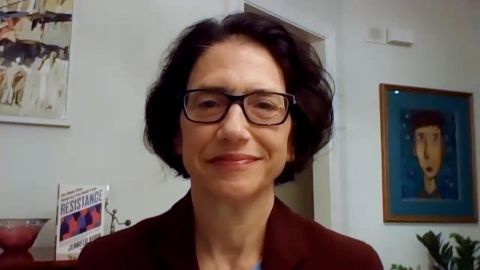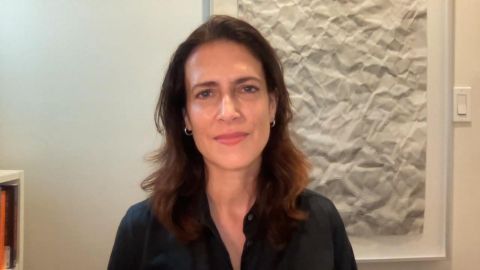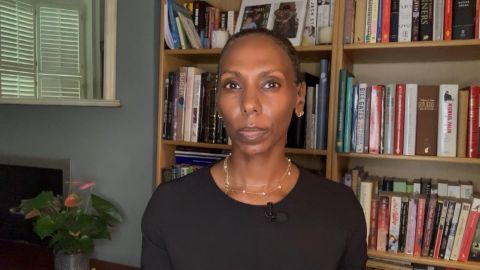Read Transcript EXPAND
NIMA ELBAGIR, SENIOR INTERNATIONAL CORRESPONDENT: Well, there are a variety of stakeholders, as you just outlined there. So let me walk you through the denials and the responses that we have received from Ethiopian Airlines, which said it complies with all aviation regulations, and, to the best of its knowledge and its records — it’s interesting wording — it has not transported any war armament in any of its routes by any of its aircraft. A U.S. trade spokesperson told CNN they would conduct a review of eligibility for the U.S. African Growth and Opportunity Act next year, in 2022, based “upon compliance with standards that include adherence to internationally recognized workers’ rights, rules of law, and human rights.” After the review, the office could possibly recommend to President Biden that he add or remove certain countries from that African Growth and Opportunity Act eligibility country — eligible country status. But that still leaves, as you rightly point out, Ethiopia with hundreds of millions of dollars worth of favorable market access in the U.S., in spite of what we showed there. And, finally, manufacturer Boeing said they had no comment. And the Ethiopian and Eritrean governments did not respond to our request for comment, Bianna.
BIANNA GOLODRYGA: And this is just one chapter in this bloody fighting and atrocities that you have been covering exclusively now for CNN for the past year. And, obviously, you have been focusing and spending a lot of time on the massacres of civilian Eritreans there — not Eritreans — I’m sorry — Tigrayans. And you have seen firsthand their bodies floating in what you have described a corpse water river there in Sudan. What has the response been internationally to your reporting?
ELBAGIR: Unfortunately, the response internationally has, while it has caused a lot of controversy and a lot of response, it hasn’t been substantive. And that’s what we have seen consistently. Recently, Ethiopia actually declared persona non grata U.N. officials who’ve been ringing the alarm on their use of food as a weapon of war in the Tigray region. Still, there don’t seem to be tangible responses and sustainable responses from the international community, at a time when many aid organizations are estimating that hundreds of people could be dying daily in Tigray. When we talk about Rwanda or we talk about Darfur, which I covered in Sudan as a younger journalist, we talk about never again. And we also talk about these inflection points, Bianna. When were these moments when the international community could have and should have, but didn’t? And it really feels that every time we release this new reporting and these new investigations into the world that we find ourselves at another inflection point.
About This Episode EXPAND
Nima Elbagir; J. Peter Pham; Andrea Elliott; Jennifer Rubin
LEARN MORE



